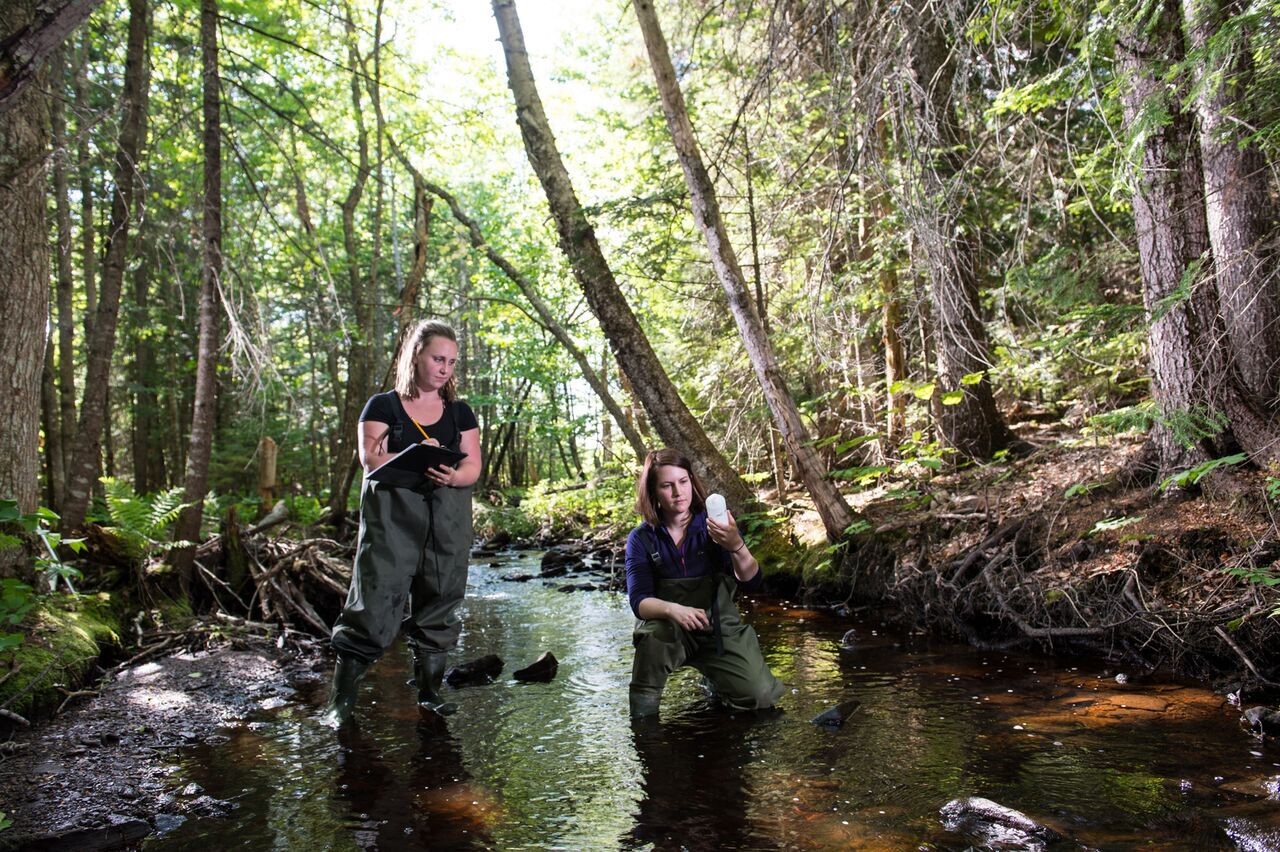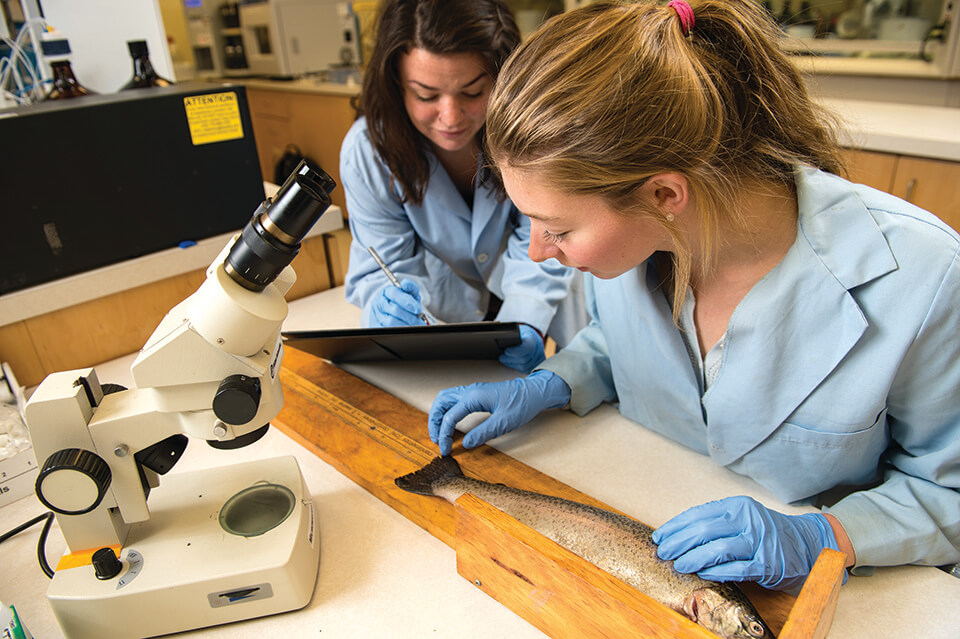STable Isotopes in Nature Laboratory (SinLAB)
The Stable Isotopes In Nature Laboratory (SINLAB) is part of the Canadian Rivers Institute located in the Biology Department at the University of New Brunswick in Fredericton, New Brunswick, Canada.
The SINLAB is one of the few stable isotope labs in Canada with an ecological focus. In addition to supporting a dynamic research team at the University of New Brunswick, the SINLAB serves an international clientele of researchers working in terrestrial, marine and freshwater ecosystems. The SINLAB and Canadian Rivers Institute have collaborated on a variety of stable isotope research projects, involving samples from both aquatic and terrestrial environments.
Environmental Chemistry Laboratory
The Environmental Chemistry Lab is located in the Canadian Rivers Institute building in Saint John, New Brunswick. It houses state-of-the-art wet and dry labs and offices for faculty and students. It performs analyses of tissues, sediments and water for mercury, other metals, polyaromatic hydrocarbons, and select pesticides and industrial chemicals.
GENOMICS Laboratory
In 2016, the Canadian Rivers Institute’s Genomics Laboratory opened at the University of New Brunswick in Saint John. This state-of-the-art genomics lab specializes in Aquatic Molecular Ecology and Ecological Genomics. The lab is equipped to perform DNA isolation and Next Generation Sequencing (NGS) library preparation, as well as bioinformatics. The Lab’s mission is to address basic and applied questions in conservation, fisheries management, evolution and ecology. Dr. Scott Pavey is the Lab’s director, as well as an Assistant Professor at the University of New Brunswick and a Canada Research Chair.
Benthic Macroinvertebrate Laboratory
The benthic macroinvertebrate (BMI) lab is building assessment models for New Brunswick's Water Classification Programme and a rapid BMI assessment tool linked to Water Classification for local community groups. In partnership with Environment and Climate Change Canada, they have developed the National online training programme for the Canadian Aquatic Biomonitoring Network (CABIN). CABIN is a collaborative programme developed and maintained by Environment and Climate Change Canada for collecting, assessing and distributing information on the biological condition and biodiversity of aquatic ecosystems in Canada.
We are currently unable to provide BMI services. Please contact us directly for more information.
Fish Ageging Laboratory
The fish ageing laboratory can provide technical services related to methods for ageing structure collection and subsequent lab analyses. We have an Isomet 1000 precision diamond saw used to section calcified ageing structures. Sections can be mounted onto slides to view using a microscope/fiche readers and/or digital imaging hardware and software.






